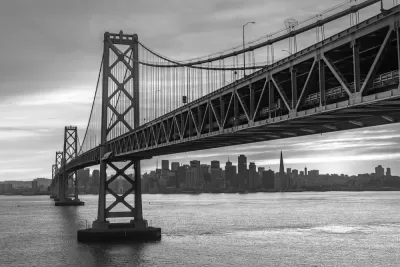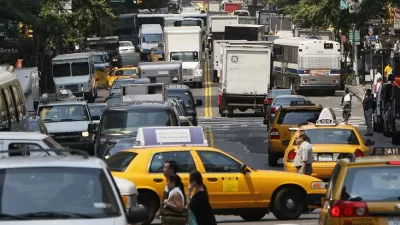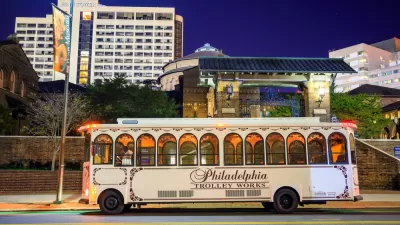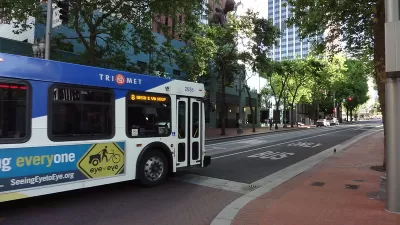Beware of transportation officials promising traffic reductions, according to this opinion piece.

In June, Bay Area voters in nine counties will consider Regional Measure 3 (RM3), which asks whether tolls should be raised by $3 on seven Bay Area bridges to generate funding for BART and other public transit and mobility projects in the region.
Irvine Dawid first reported on the potential ballot measure for Planetizen in December 2016, following up again with developments in October 2017 and January 2018 as RM3 picked up momentum toward the ballot. RM3 already has the support of the East Bay Times and organizations like the Bay Area Council, Silicon Valley Leadership Group, and SPUR.
David Schonbrunn, president of the transit advocacy organization TRANSDEF, argues that RM3 will fail to deliver its promised congestion reductions.
The sponsor of the measure, the Metropolitan Transportation Commission (MTC), decides on our region’s transportation priorities. Traffic conditions in the Bay Area have steadily worsened over the last few decades, despite the many billions of dollars spent by MTC. If MTC knew how to cut traffic, it would have done so by now. Slogans like “We must do something” ignore this. Doing the same things that haven’t worked before won’t help now.
According to Schonbrunn, the only thing that will reduce traffic is a reduction in solo driving, but the "MTC and the Valley Transportation Authority (VTA) have continuously spent our resources to facilitate solo driving rather than transit." Schonbrunn suggests sending a message to the MTC by voting now, and suggests Seattle as a model for planning in a way that inspires more commuters to leave their cars at home.
FULL STORY: Opinion: RM3 would condemn Bay Area to gridlock

Planetizen Federal Action Tracker
A weekly monitor of how Trump’s orders and actions are impacting planners and planning in America.

Maui's Vacation Rental Debate Turns Ugly
Verbal attacks, misinformation campaigns and fistfights plague a high-stakes debate to convert thousands of vacation rentals into long-term housing.

Cuomo Is the Candidate of Both NIMBYs and Developers. What Gives?
In the New York City mayoral race, odd bedfellows align to preserve the housing status quo.

The Subversive Car-Free Guide to Trump's Great American Road Trip
Car-free ways to access Chicagoland’s best tourist attractions.

San Antonio and Austin are Fusing Into one Massive Megaregion
The region spanning the two central Texas cities is growing fast, posing challenges for local infrastructure and water supplies.

Charlottesville Temporarily Has No Zoning Code
A judge ordered the Virginia city to throw out its newly revised zoning code, leaving permitting for new development in legal limbo.
Urban Design for Planners 1: Software Tools
This six-course series explores essential urban design concepts using open source software and equips planners with the tools they need to participate fully in the urban design process.
Planning for Universal Design
Learn the tools for implementing Universal Design in planning regulations.
Heyer Gruel & Associates PA
JM Goldson LLC
Custer County Colorado
City of Camden Redevelopment Agency
City of Astoria
Transportation Research & Education Center (TREC) at Portland State University
Jefferson Parish Government
Camden Redevelopment Agency
City of Claremont





























